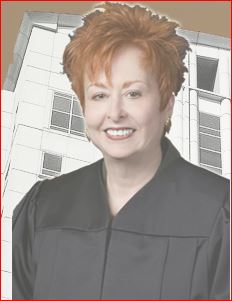(Note: As I have done in past elections, I am running a series of Q&As for Democratic judicial candidates on the November ballot. This is intended to help introduce the candidates and their experiences to those who plan to vote. I am running these responses in the order that I receive them from the candidates.)
1. Who are you and what are you running for?
My name is Shawna Reagin and I am the Democratic candidate for Judge of the 248th Criminal District Court.
2. What kind of cases does this court hear?
Felony cases, e.g., capital murder, murder, aggravated & non-aggravated robbery, aggravated & non-aggravated sexual assault, burglary, etc.
3. Why are you running for this particular bench?
I was Judge of the 176th Criminal District Court from 2009-2012. My opponent was appointed to fill a vacancy in Jan. 2013. I have more criminal law and judicial experience than my opponent, and preferred not to run against a judge with whom I had previously served.
4. What are your qualifications for this job?
My previous tenure as felony court judge, in addition to 20 years experience practicing criminal law at the felony trial and appellate levels. I was voted Best Criminal Judge in Houston 2009 by the Houston Press. I inherited a docket with about 235 pending jury trials and nearly 1,000 pending cases in January of 2009, which was reduced to 41 pending jury trials and 729 pending cases by December of 2012. The 176th was consistently at or near the top of the 22 criminal district courts in number of cases tried, and to date, to the best of my knowledge, no trial verdict has been reversed.
5. Why is this race important?
There is a saying that the lower down on the ballot a race is, the more it affects your daily life. People are going to interact with the courts, whether they think so or not. Criminal district court judges are responsible for empanelling grand juries, among other duties; a judge who does not think diversity is important is less likely to empanel a grand jury that is truly reflective of the community, which then affects the credibility of the grand juries’ actions.
Criminal district courts handle the most serious offenses that occur in our society. It is important to elect judges who know the law and are committed to following the law in a fair and impartial manner. We cannot have judges who believe they are adjuncts of the D.A.’s office, any more than we can have judges who advocate for the defense.
Long delays in getting cases to trial is harmful to both sides of a criminal case. The public should demand judges who are willing to put in the time to try cases in a timely manner.
6. Why should people vote for you in November?
First, for my qualifications and experience, as stated above. Since my opponent was appointed, the jury trial docket in the 248th has more than doubled, from 59 on 12/27/12 to 125, as of 9/12/14.
Second, as long as we elect judges in a partisan method, I believe the political party with which a judicial candidate aligns him/herself is worth scrutiny. No Republican judicial candidate responded to invitations to screen offered by either the Harris County AFL-CIO or the Houston GLBT Political Caucus. The Republican party does not permit GLBT groups to participate in its state convention, or even to maintain booths in the exhibition hall. The Republican party is against equality for GLBT persons and promotes the scientifically and medically discredited “conversion therapy,” which is essentially an existential attack on non-heterosexuals.
Voters should consider whether a judicial candidate who carries the Republican label will be a judge who dispenses justice in a truly fair and equal manner. Candidates who refuse to engage in dialogues with representatives of working folks or the GLBT community have demonstrated a complete disregard for those points of view. As a Democrat, I proudly claim the endorsements of both the Harris County AFL-CIO and the Houston GLBT Political Caucus and am committed to equal treatment and rights for all.

